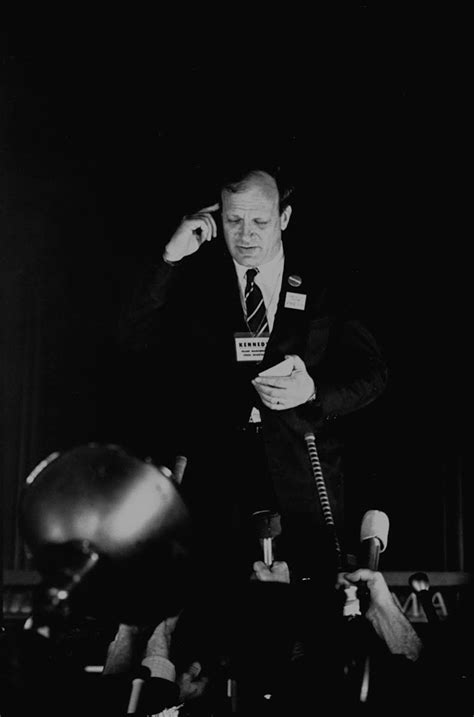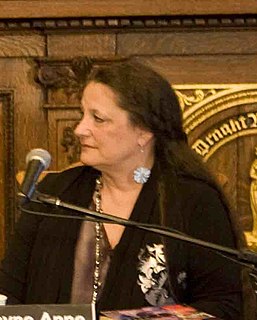A Quote by Jeffrey Eugenides
I'm the final clause in a periodic sentence, and that sentence begins a long time ago, in another language, and you to read it from the beginning to get to the end, which is my arrival.
Related Quotes
A dependent clause (a sentence fragment set off by commas, dontcha know) helps you explore your story by moving you deeper into the sentence. It allows you to stop and think harder about what you've already written. Often the story you're looking for is inside the sentence. The dependent clause helps you uncover it.
There's another way to edit the sentence, which is to add a comma before the second 'which.' The survivor is struggling toward 'some resolution,' not a specific resolution that the mind may never find. The final clause is an appended thought, not a conclusion of the previous clause: 'Death ends a life, but it does not end a relationship, which struggles on in the survivor's mind toward some resolution, which it may never find.'
Every sentence has a truth waiting at the end of it and the writer learns how to know it when he finally gets there. On one level this truth is the swing of the sentence, the beat and poise, but down deeper it's the integrity of the writer as he matches with the language. I've always seen myself in sentences. I begin to recognize myself, word by word, as I work through a sentence. The language of my books has shaped me as a man. There's a moral force in a sentence when it comes out right. It speaks the writer's will to live.
Writing is linear and sequential; Sentence B must follow Sentence A, and Sentence C must follow Sentence B, and eventually you get to Sentence Z. The hard part of writing isn't the writing; it's the thinking. You can solve most of your writing problems if you stop after every sentence and ask: What does the reader need to know next?
A politician will always tip off his true belief by stating the opposite at the beginning of the sentence. For maximum comprehension, do not start listening until the first clause is concluded. Begin instead at the word 'BUT' which begins the second, or active, clause. This is the way to tell a liberal from a conservative - before they tell you. Thus: 'I have always believed in a strong national defense, second to none, but...(a liberal, about to propose a $20 billion defense cut).
I turn sentences around. That's my life. I write a sentence and then I turn it around. Then I look at it and I turn it around again. Then I have lunch. Then I come back in and write another sentence. Then I have tea and turn the new sentence around. Then I read the two sentences over and turn them both around. Then I lie down on my sofa and think. Then I get up and throw them out and start from the beginning.
Some readers read a book as if it were an instruction manual, expecting to understand everything first time, but of course when you write, you put into every sentence an overflow of meaning, and you create in every sentence as many resonances and double meanings and ambiguities as you can possibly pack in there, so that people can read it again and get something new each time.
It's kind of like sentencing. A lot of people say that we have a heavy sentence for this crime and a light sentence for another crime, and what we ought to do is reduce the heavy sentence so it's more in line with the other. Wrong. In most cases we ought to increase the light sentence and make it compatible with the heavy sentence, and be serious about punishment because we are becoming too tolerant as a society, folks, especially of crime, in too many parts of the country.
The prospect of his future life stretched before him like a sentence; not a prison sentence but a long-winded sentence with a lot of unnecessary subordinate clauses, as he was soon in the habit of quipping during Happy Hour pickup time at the local campus bars and pubs. He couldn’t say he was looking forward to it, this rest-of-his-life.
A sentence is like a tune. A memorable sentence gives its emotion a melodic shape. You want to hear it again, say it—in a way, to hum it to yourself. You desire, if only in the sound studio of your imagination, to repeat the physical experience of that sentence. That craving, emotional and intellectual but beginning in the body with a certain gesture of sound, is near the heart of poetry.






































